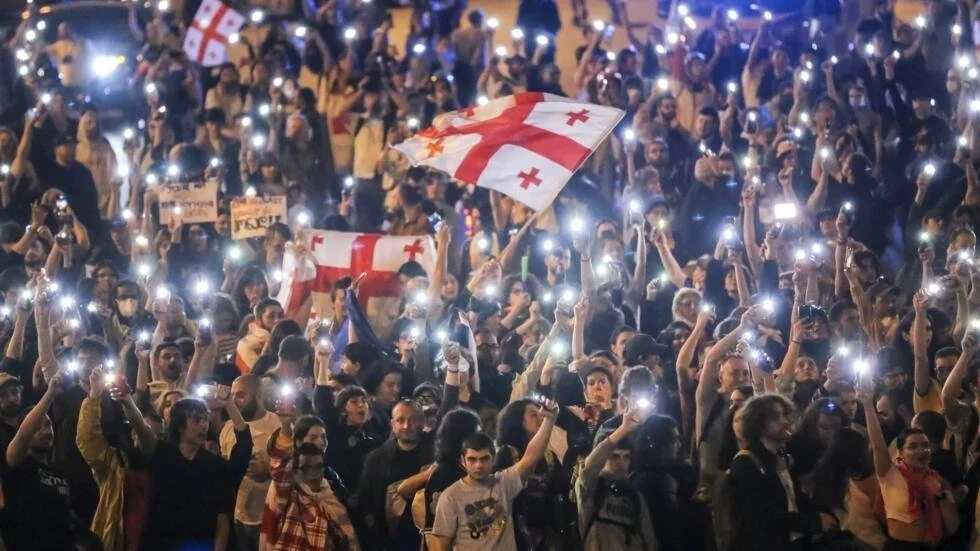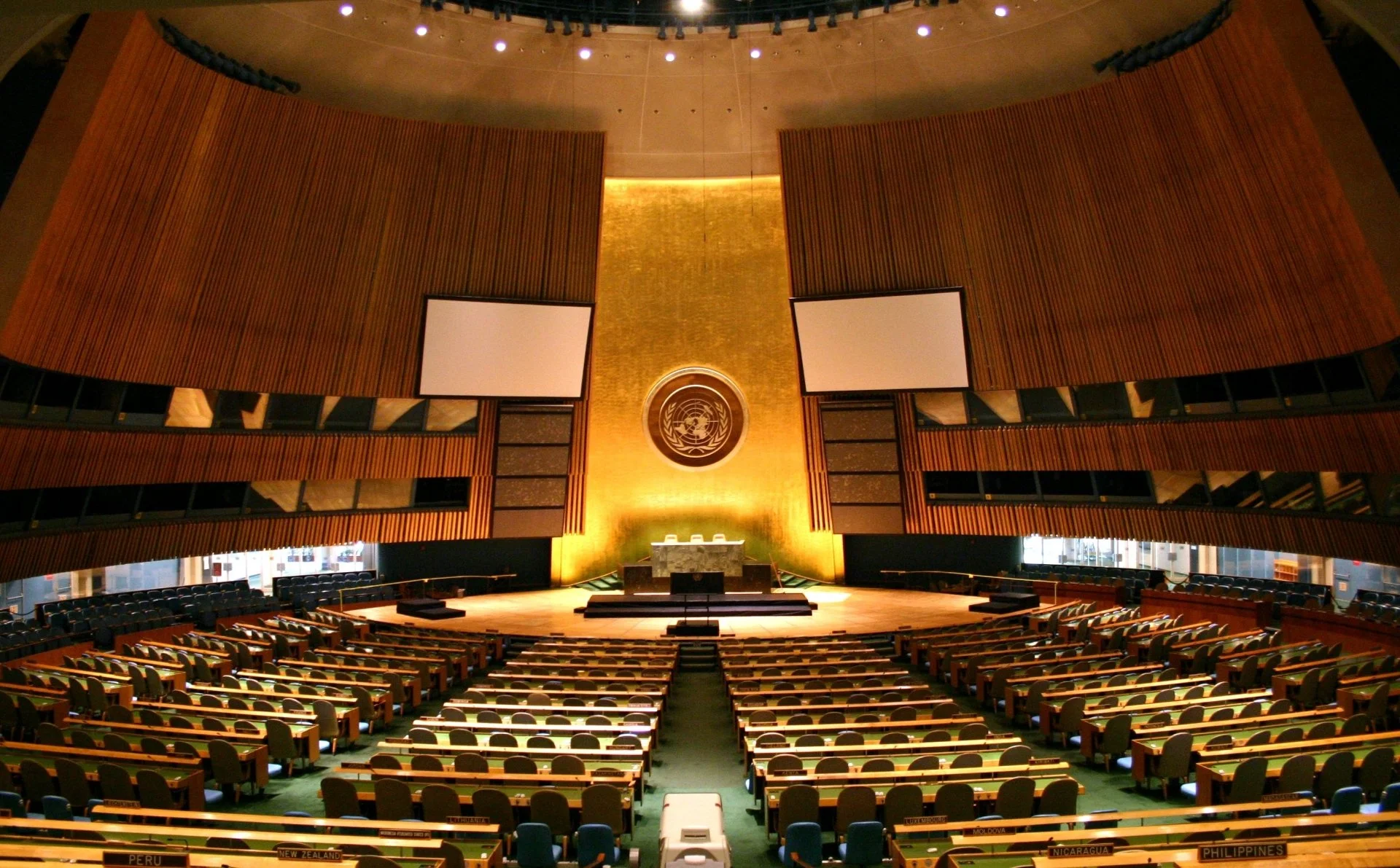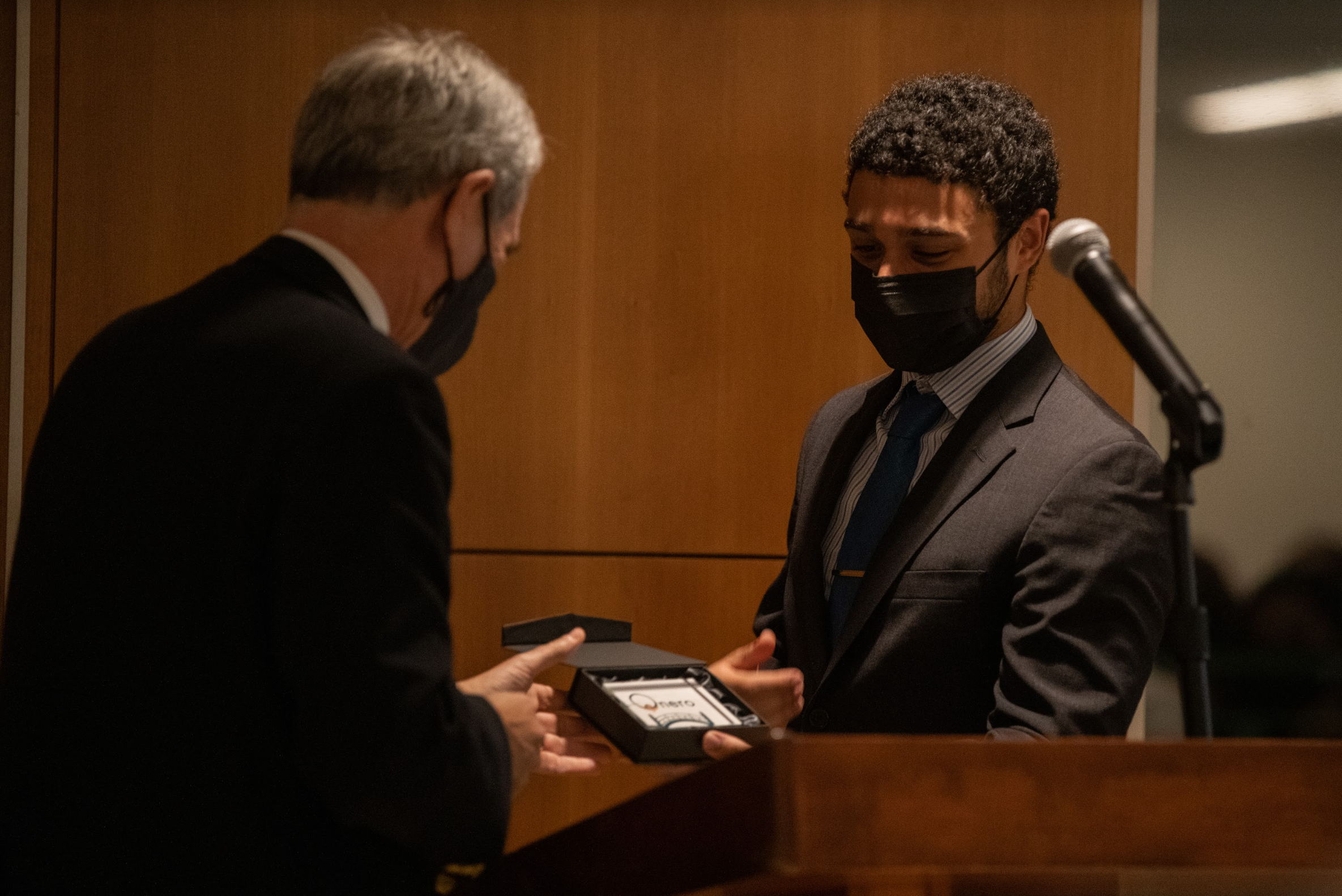
Research
Date Published
- March 2025
- February 2025
- January 2025
- December 2024
- November 2024
- October 2024
- September 2024
- August 2024
- July 2024
- June 2024
- March 2024
- February 2024
- October 2023
- March 2023
- February 2023
- January 2023
- November 2022
- October 2022
- January 2022
- November 2021
- October 2021
- August 2021
- July 2021
- March 2021
- September 2020
- August 2020
- July 2020
- February 2020
Filters to only view publications from a particular program:
Pax Africana: Italy's Ambitious plan for Africa
Meloni, hosting this year’s G7, wanted attending nations to turn south towards Africa. Meloni cleverly leveraged her role as host to sweeten Western economies’ taste of her grand strategy for Africa: The Mattei plan.
Another Yanukovych? - Georgia’s Foreign Agent Law and it’s Implications for Peace in Europe
Many Western analysts have drawn comparisons between the ongoing protests in Georgia and the 2013-2014 Euromaidan protests in Ukraine. While there may be various similarities, there are some important distinctions.
France’s Rise of the Right
France’s far-right National Rally (RN) has captured widespread attention after winning a decisive 31.4% of the vote in the European parliamentary elections.
Georgia’s Foreign Agents Law: a Brief History of NGOs in the country
By passing the Foreign Agent Law, Georgia is not choosing to become a pro-Russia satellite nor is it choosing to abandon its aspiration of becoming a EU and NATO member. Georgia is choosing its sovereignty and its stability.
Emmanuel Macron: The Newest Governmental Gambler?
With a tumultuous tenure in office, Macron’s latest gambit has thrown French politics into upheaval, and may yet end poorly for the French President.
Drones in Ukraine: A Revolution in Warfare
In the initial phase of the Ukraine war, combat consisted of uncoordinated skirmishes with limited strategic use of technology. However, as the conflict has progressed, it has evolved into a battleground for intricate and sophisticated drone dogfights.
90 Seconds to Midnight
In early 2024, The Bulletin of the Atomic Scientists set the Doomsday Clock to 90 seconds to midnight, marking the closest approach to nuclear war since the Cuban Missile Crisis. The world is on a precipice, and we must remain vigilant.
Italy and Turkey in the Changing Mediterranean Order
As the US and EU focus elsewhere, Italy and Turkey have increased cooperation in the Mediterranean. Despite differing foreign policy objectives, they share common interests in stabilizing Libya and playing a more active role in the Mediterranean’s security.
The State of Abortion: Poland’s Path to Democratic Reconstruction
Though the latest United States Human Rights Report praises the government’s recent strides toward reform, there continue to be obstacles to accessing sexual and reproductive health services.
Russia: Estonia’s Biggest Security Threat
Russia is Estonia’s greatest security threat to Estonia, as driven by its geographical proximity, societal integration challenges with Estonia’s Russian minority, and rising cyber threats.
The Implementation of Protection and Prevention pillars of UNSCR 1325 on Gender-Based Violence in Conflict-Affected Areas
In the 23 years since the declaration of the United Nations Security Council Resolution (UNSCR) 1325 on Women, Peace and Security (the WPS Agenda), national and international implementations have had both successes and failures in upholding the agenda. By evaluating the progress that has been made, we can better understand how to move forward with better solutions for the future.
An Overview of Censorship in Germany
Following Germany’s unification in 1871, censorship legislation has shifted significantly. What has been the effect of Germany’s censorship laws on Germany’s modern understanding of free speech?
Wang Huning - from Shanghai Scholar to China’s Top Policymaker
On September 11th, Wang Huning, a Politburo standing committee member and the CCP's leading ideologist, was appointed as the chairman of the China Council for the Promotion of Peaceful National Reunification (CCPPNR). The appointment of Wang has given spectators a good opportunity to poke into the organizational structure of the CCP’s central subdivisions and personal backgrounds of a Politburo member who is one of the most powerful politicians in China.
The Threat of Mining within Panamá
PANAMA — “We have unanimously decided to declare the entire law 406 unconditional,” said the Supreme Court president Maria Eugenia Lopez. After months of endless protest, Central America’s Largest open-pit copper mine has finally closed. How did Panamá get here? There is a complex and politically draining history regarding mining in Panamá. Operated by First Quantum Minerals, a Canadian-owned mining company contracted at the Cobre Panamá Mine had established roots in the Spring of 2013. Establishing itself in the Colon Province, the Canadian 34,000-acre project (bigger than the city of Manhattan) progressed in 2017 and was soon deemed unconstitutional by Panama’s Supreme Court. To uphold this ruling a fresh draft was made and passed through the Panamanian government as Law 406 on October 20th, 2023 marking the final step in revisiting the legal structure for the Cobre Panama Mine.
Caribbean Youth against Heat Waves: Climate Justice, and Energy Restructuring
With global temperatures rising to unseen levels, the Caribbean lies at the center of the impact and the center of youth agency for climate change action. The summer of 2023 in the Northern Hemisphere broke historic heat levels and set itself as the hottest summer on record,[1] underscoring the Caribbean's susceptibility to climate challenges. UN Secretary-General António Guterres described the region as ‘ground zero’ for the international climate emergency.[2] Due to extreme climate conditions, students protested in Puerto Rico for air conditioning during heat waves. This civic engagement highlighted the responsibility of that “climate resilience” effort from younger generations to restructure approaches using schools to claim climate justice by refurbishing policies.
The Impact of Rising Violence on Indigenous Communities and Indigenous Women in Colombia
Colombia has a long history of violence and conflict, including the well-known period called “La Violencia” between 1948 and 1957. Since then, international actors and the Colombian government have attempted to minimize the level of violence within the country, but fell short of making an effective change. Through the attempts these governments and organizations have made, including the 2016 Peace Deal between the government and the Revolutionary Armed Forces of Colombia (FARC), they have routinely mismanaged solutions and created more unrest and anger from the public and guerilla groups. In these situations of overwhelming violence, it is essential to recognize that Colombia’s marginalized communities have faced the worst impacts. Despite indigenous people having the right to their lands and to practice their traditions and culture as per the Constitution of 1991, they are still actively discriminated against in Colombia’s exclusive and traditional society. Not only do indigenous people face rampant discrimination in Colombia, but indigenous women are disproportionately impacted by the surges of violence and are ignored by most international communities and the local and federal governments.
An Overview of Selected African Elections in 2024
In 2024, the global political landscape is marked by pivotal elections, including the anticipated rematch between Donald Trump and Joe Biden, the United Kingdom's general election, and India's general election. Africa is also hosting a number of elections this year, which will likely play a seminal role in shaping regional and international politics. Let’s take a closer look at three of the most important elections happening this year on the continent: Elections in Ghana, Senegal, and South Africa.
The French War on Terror in Africa
2023 saw the near-total collapse of France's military presence in West Africa. A string of high-profile coups in the Sahel, the region straddling the transition zone between the Sahara and the Sudanian savanna, have chased the French out of their former colonial holdings. Coupled with the disastrous end of the eight year-long counterterrorism mission Operation Barkhane in November of 2022, France has departed the Sahel just as violence and instability are reaching heretofore unseen levels. The following will examine the breakdown of the French War on Terror, and what France’s departure from the region means for the future of the Sahel.
Arab World and Israel
In the Middle East and North Africa (MENA), power dynamics have shifted significantly since the Abraham Accords were signed in late 2020 between Israel, Bahrain, and the United Arab Emirates (UAE). Prior to the Accords, the Arab world at large maintained leverage over Israel in its near universal rejection of the Jewish State and support for the Palestinian cause. The Arab world’s unanimity led the charge to boycott all Israeli goods, delegitimize its right to exist in the court of public opinion, and counter Israel militarily whether by proxy or in direct conflict.
The Implementation of Protection and Prevention pillars of UNSCR 1325 on Gender-Based Violence in Conflict-Affected Areas
In the 23 years since the declaration of the United Nations Security Council Resolution (UNSCR) 1325 on Women, Peace and Security (the WPS Agenda), national and international implementations have had both successes and failures in upholding the agenda. By evaluating the progress that has been made, we can better understand how to move forward with better solutions for the future.






















